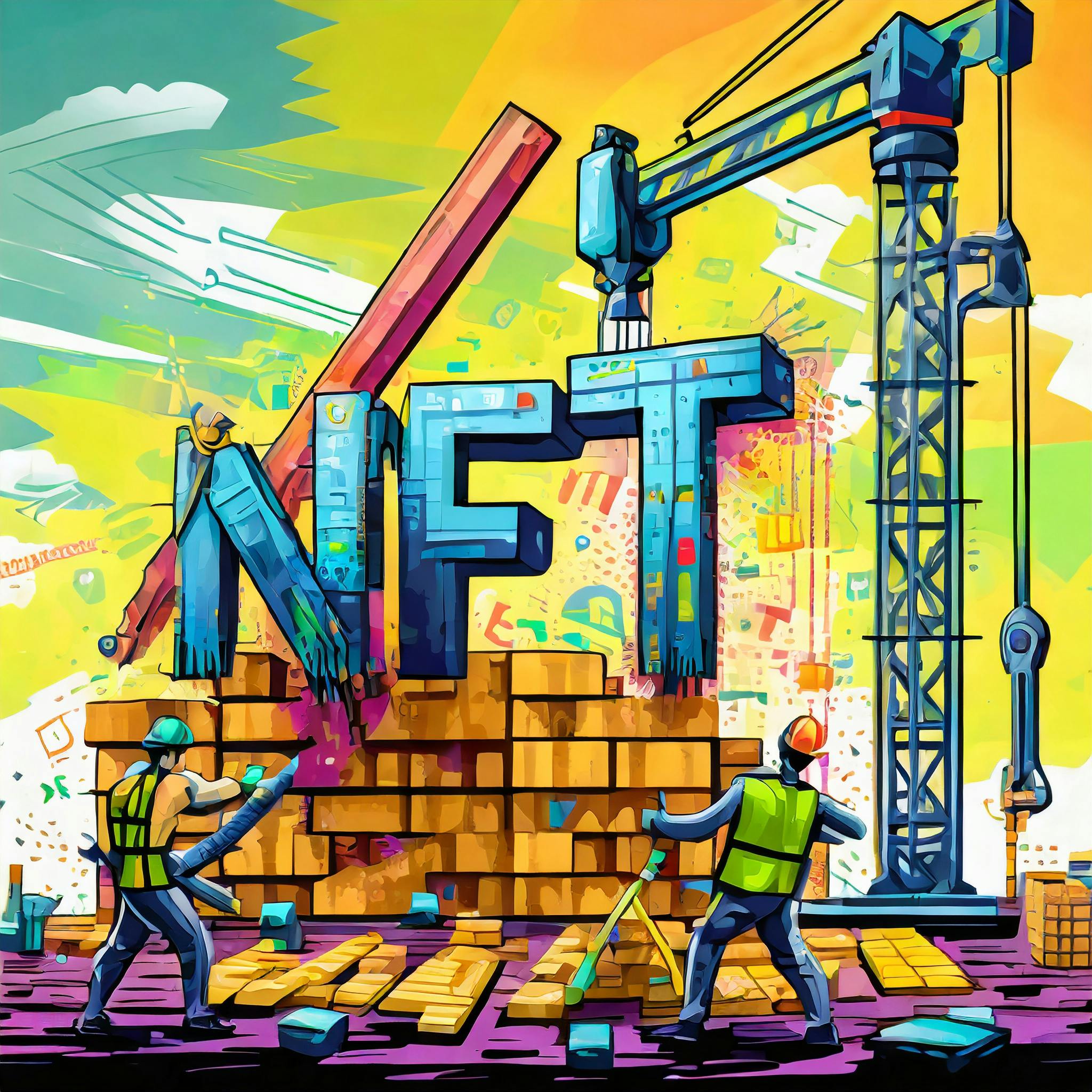
Buying Time in NFT Space
Why Acquisitions of Web3 Projects Make Sense For Some

Surprisingly, I have had this conversation many times in the past several months. Some people believe that acquisitions of NFT projects make no sense and are mostly a loosing game. Others, like myself, see it as a strategic move from people with marketing & sales backgrounds who have resources available. Strategic move to repurchase time back before the bull market starts.
Speed is everything!
It is not for everyone, but in the ever-evolving landscape of technology, particularly in our realm of web3 and NFTs, a fundamental truth often goes unnoticed: time is the most valuable asset. It's not just a resource that we're all racing against, but the bedrock upon which technological advancements and market dominance are built.
In this context, acquiring web3 projects, especially those in the NFT space, becomes a strategic move not so much for asset accumulation but rather for buying back the team's time.
Let's dissect this through the typical NFT project launch timeline, which was nicely summarised by Leon (@heythisisleon) in his recent tweet.
Professional NFT project's launch timeline is generally divided into three phases, each with its unique set of activities and duration. But they all take weeks or even months, not days, to execute, and no matter the skills, experience, and resources, it is gonna take anywhere between 3-6 months minimum to launch a project in Web3 successfully. That's a lot of time "not spent on actual business."
Let's quickly look at the phases:
Phase 1 (6-54 weeks): This is the foundational stage, involving founder(s) funnels, brand teasers, and collaborations with Level 3 communities and influencers. It's a period of planting seeds, where the groundwork is laid for future growth. And for those who wonder why Level 3 communities - you are new, nobody knows you, you are building up the ladder.
Phase 2 (3-12 weeks): Here, the project hopefully gains momentum. It involves more founder(s) and team funnels, product announcements, and moving up the ladder in collaborations - engaging with Level 2 communities and maybe as many (like Leon) will suggest, hosting a weekly Space Shows (ideally with some influencer friend).
Phase 3 (1-4 weeks): This phase is the final step. Team is going full-throttle and basically tries to put everything you used before on steroids. Add new brand collaborations and engagement with Level 1 communities and influencers. And you can step up your Space Shows to daily and tailor them to global audiences - i.e. do them in different times for different regions, typically US/Europe/Asia+Ozzies.
Now, you probably start seeing why does an acquisition in this context make sense, right? The straightforward answer is: you're not just buying a project; you're buying time.
What do you get?
When a company acquires an NFT project, they're not just acquiring assets or a customer base, and (usually bad) reputation. They're acquiring the months or even years of groundwork that's been laid during these phases. The brand building, the community engagement, the influencer networks – all these elements that take considerable time to develop are instantly available.
Sure, you may want to improve, expand, reshape, but you are not starting with a clean slate. Your problems are of totally different nature than when starting from zero.
The way I see it, especially in the rapidly changing world of web3, time translates directly into money. The longer it takes to build these foundations, the more opportunities are missed. By the time a project goes the process from scratch, the market may have shifted, leaving them behind. An acquisition is a leapfrog move; it's a way to bypass the evolutionary steps and position oneself immediately in the forefront.
Another aspect to consider is the innovation cycle and distribution rails. In web3, where the pace of innovation is frenetic, being even a few weeks late can mean missing a crucial market window. Acquiring an established project means gaining immediate access to innovations and community that could have taken months or years to develop independently. This immediacy is a key factor in maintaining a competitive edge.
Lastly, acquisitions in the web3 space are not just about the present value but about the potential future value. Here I mean also timing - if you acquire project in bear market and prep it for bull run, we are talking unique opportunity that can't be replicated when starting from scratch.
Yes, Acquisitions also fail!
It's fair to mention that there are more failed acquisitions in Web3 (and IRL) than successful ones, but that's not because the acquisition is a bad idea. It's mostly because the new team didn't executed well on their new vision for the project.
In our Web3 space, having a vision for your acquisition is whole another topic I may touch upon some other time. But we all saw NFT projects acquired with "new direction ideas" that were sometimes too optimistic, sometimes too selfishly focused, sometimes just non-existent. Such as life.
Conclusion - will you buy or will you build
In conclusion, the acquisition of web3 projects, particularly NFT initiatives, can be highly profitable strategic maneuver that transcends traditional asset acquisition. With the purchase you buy yourself time, distribution and market cycle timing – basically a shortcut through the net of technological and market developments.
If you see the opportunity, you have the resources and ideas how to improve and reshape things, such acquisitions are very sensible and can provide you with a headstart in our ever-evolving Web3 frontier. Go for it!
I hope to see you around, if you like - bring your friends - and let's support each other!
BFG (aka BrightFutureGuy)
- on X: https://twitter.com/aka_BFG
- on Farcaster - https://warpcast.com/bfg



 129
129

